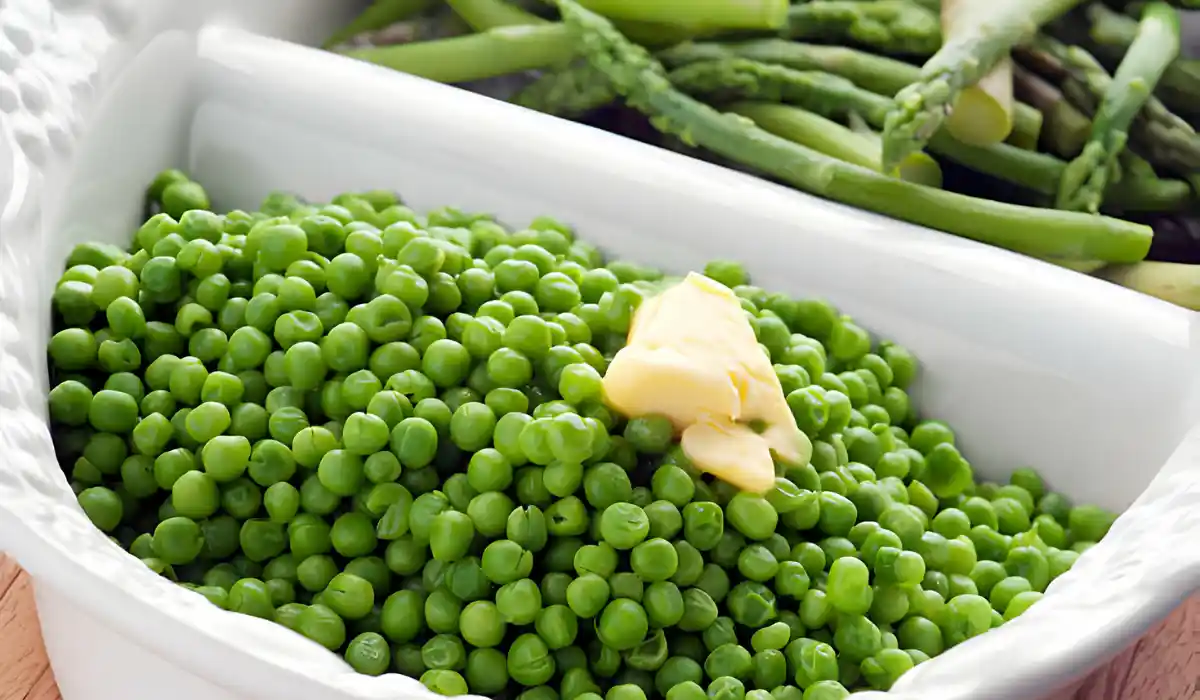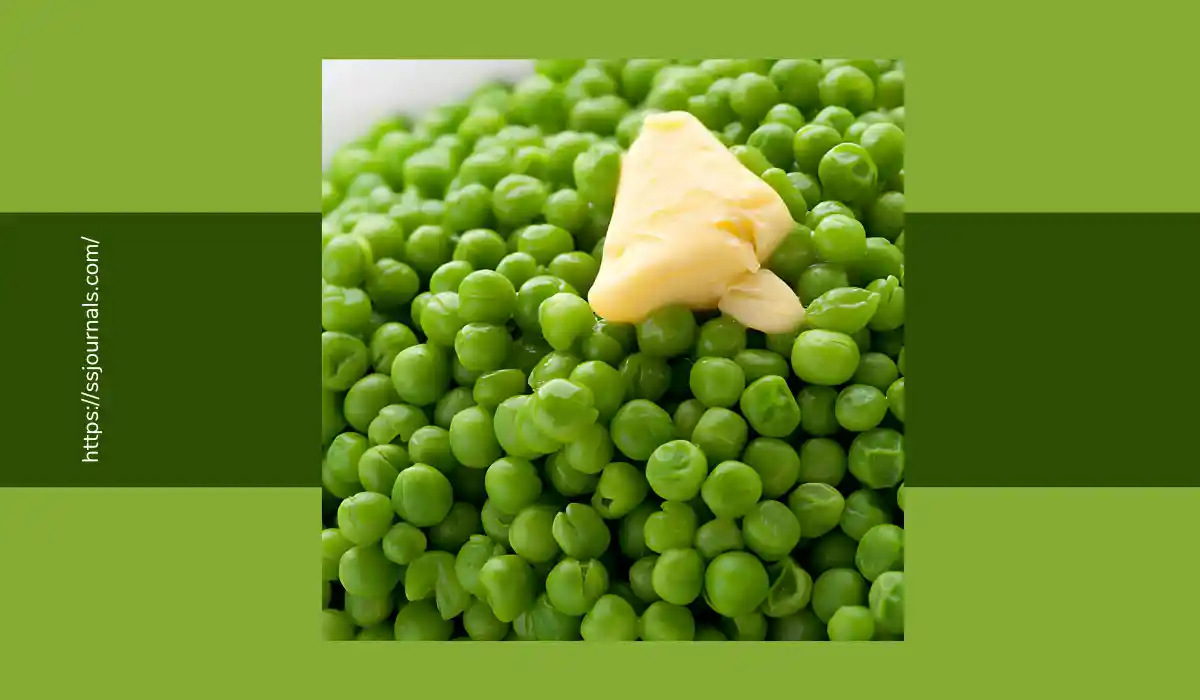Butter peas, also known as butterbeans or lima beans, are a popular variety of peas that have a rich, buttery flavor when cooked. With their high protein and fiber content, butter peas can be a nutritious addition to a balanced diet. But are butter peas good for you?
As a legume, butter peas are a plant-based source of protein. With about 7-10 grams of protein per half-cup cooked serving, butter peas contain more protein than many other beans. The butter pea’s protein is also considered high quality, meaning it contains all the essential amino acids our bodies require from food. Along with their protein content, butter peas are also high in fiber, complex carbs, iron, magnesium, and potassium. This unique nutritional profile gives butter peas the potential to be a healthy part of a balanced diet.
However, some people wonder whether the calories, carbs, or other components of butter peas could have downsides as well. By looking at the nutrition facts and potential benefits of butter peas, we can get a better sense of how they may influence health.
Are Butter Peas Good For You?

Butter peas, also referred to as lima beans, are a member of the legume plant family. Their name comes from the capital of Peru, Lima, where butter peas originated. Today, they are grown around the world in warm and temperate climates. Butter peas get their name from their typically creamy texture and delicious, delicate, buttery flavor. Dried, fresh, and frozen butter peas are all commonly eaten forms. Popular ways to enjoy this versatile bean include simmering them in soups and stews, baking them into casseroles, or pan-frying them as a side dish.
While related to other beans, butter peas have their own distinct appearance and nutritional values. Butter peas are a flat, oval-shaped legume around 1 to 2 inches in size. Their outer shell or pod ranges in color from pale green to white. Inside this protective casing are the inner peas themselves, which also come in diverse shades like green, white, mottled, or purple. There are even smaller varieties known as baby butter peas. When cooked, all varieties take on a rich, softened texture and become a beautiful warm ivory tone.
How Much Protein is in Butter Peas?
Butter peas provide about 7-10 grams of protein per half-cup cooked serving. This makes them one of the more protein-packed bean varieties. While they contain less protein than foods like meats and eggs, butter peas offer more plant-based protein than many grains, vegetables, fruits, or nuts. Adding just one cup of cooked butter peas to your meal or throughout the day can contribute beneficial amounts of this important macronutrient.
The protein found in butter peas is considered high quality as well because it contains a balanced proportion of amino acids. Our bodies require 20 different amino acids to construct the thousands of different proteins necessary for health and survival. While our liver can produce some, there are nine “essential” amino acids we must get through food sources. Butter peas provide good amounts of all nine, including the amino acids lysine and tryptophan that some other plant foods lack. Therefore, butter peas can be an excellent way for vegetarian or vegan diets to meet protein needs.
Is Pea High in Protein?
All varieties of peas, including split peas, black-eyed peas, snow peas, and sugar snap peas contain significant protein since they belong to the nutritious legume family. However, out of all varieties, butter peas tend to be one of the highest not only in overall protein content but specifically in the amino acid lysine. Since lysine is one of the more limiting amino acids in plants, butter peas rise to the top as one of the more “high quality” or “complete” plant proteins.
Potential Benefits Of Butter Peas
The unique nutritional attributes of butter peas translate to some possible health perks. As a potent plant-based provider of protein, fiber, vitamins, and minerals, adding butter peas to your diet a few times a week may help:
- Build and maintain muscle mass with its amino acid content
- Aid digestion and heart health via its 7-10 grams of fiber per serving
- Regulate cholesterol levels thanks to its lack of saturated fat and sufficient magnesium and potassium
- Stabilize blood sugar swings due to its fiber, plant protein, and complex carbohydrates
- Prevent iron deficiency or anemia through its supply of non-heme iron
- Provide sustained energy for exercise and activity with about 180 calories per one-cup cooked serving
Compared to meats and cheeses, butter peas can be a much healthier source of protein due to their lack of saturated fats, rich nutrient content, and potent fiber. For those monitoring carbohydrates, butter peas contain around 40 grams of total carbs per cooked cup, making them a wholesome high-carb choice. Their low glycemic index indicates they should not cause dangerous blood sugar spikes. Research also suggests the polyphenols and tannins in beans like peas could have protective benefits against chronic inflammation, oxidative damage, cardiovascular disease, and high blood pressure.
Final Result
Over the past 9,000 years, beans like butter peas became a key crop globally not only for their convenience but also their nourishment. Due to providing a power combo of essential proteins, vitamins, minerals, and fiber, butter peas became sustenance for ancient civilizations from China and India to Greece and the Americas. Today, global health organizations still recognize them as smart, affordable food to meet nutritional requirements across all stages of life. Their benefits simply come with a few downsides, especially when consumed in moderation as part of an overall varied diet.
While more research is still needed, evidence highlights legumes like beans and peas as cornerstone foods for improving longevity, body weight, digestion, and more. The core nutrients of butter peas could even help reduce healthcare costs for issues like diabetes and heart health nearing crisis levels. Yet despite their established value through centuries, only about 8% of Americans eat beans and peas.
So, should more people start working these nutrient powerhouses like butter peas into their lives? Can such a simple shift make that much of an impact? Given all we know historically, nutritionally, and scientifically – signs point to yes. Including just a few servings of butter peas, each week provides small additions that could add up in a big way over a lifetime. Their subtle flavors easily incorporate into many dishes as readily as their nutrients incorporate into improved bodily functions. So if looking to vary menu plans for health support the easy way, letting butter peas shine could be one step to consider. What do you think – are butter peas good for you?

